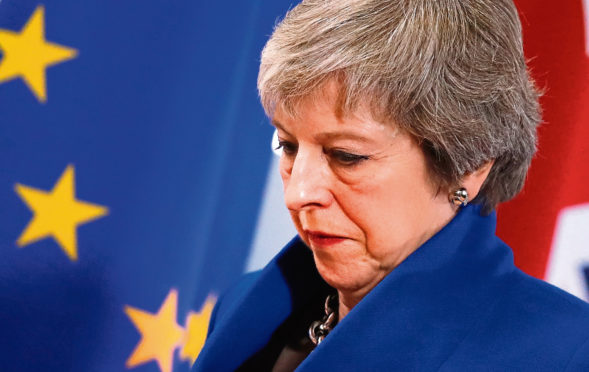Theresa May for the first time seemed to accept reality in the Commons yesterday.
Boxed in by European leaders unwilling to bend to her demands, Cabinet ministers fearful of a no-deal exit next month and MPs threatening to “take control” of the process, she offered Parliament a plan B and C.
The prime minister confirmed that, in the face of little progress on renegotiating the controversial Northern Ireland “backstop”, she would allow Parliament not only a say on her deal, as was the case in January, but also a chance to vote on pursuing either a no-deal Brexit or an extension of Article 50.
The move came after a tough weekend of negotiations for the PM with EU leaders in Egypt and while she may have told MPs that the government was “making good progress”, her decision was a major tactical acknowledgement that her deal may not end up being the way Britain leaves the EU.
Tory backbenchers were quick to cry “betrayal” and one noted that the PM had promised “more than 100 times” to take the UK out of the EU on March 29.
Mrs May had obviously anticipated the Brexiteer backlash and affirmed again and again that she did not want the extension and went even further by telling MPs that she believed “if we have to, we will ultimately make a success of a no-deal”.
However the rhetoric, no matter how strong, did not quell the anger of Leave-backing Tories.
Jacob Rees-Mogg, speaking afterwards, said: “My suspicion is that any delay to Brexit is a plot to stop Brexit.
“This would be the most grievous error that politicians could commit.”
Phraseology aside, Mr Rees-Mogg alludes to an important point about the possibility of Brexit being stopped.
There is no majority in Parliament for Mrs May’s deal, the EU has so-far been steadfast in its opposition to giving the concessions Mrs May needs to get an acceptable deal and there is no majority for no-deal.
That leaves an extension to Article 50 the most likely outcome.
Mrs May says she does not want to see that extension go beyond the end of June, but if the PM has to head to Brussels seeking an extension with just days to go before a no-deal exit she will not be in a position to argue over the extension period.
Indeed the Dutch prime minister, Mark Rutte, said over the weekend that the EU wanted to avoid granting a short extension only to have to repeatedly revisit the issue due to a lack of direction.
So, with prolonged Article 50 negotiations now on the horizon, Labour’s commitment to a public vote and rumours of more defections yet to come to the pro-EU Independent Group of MPs, the future of Brexit looks very uncertain at this moment.
